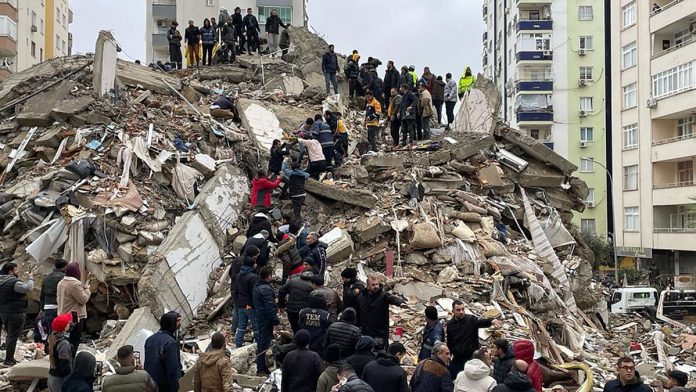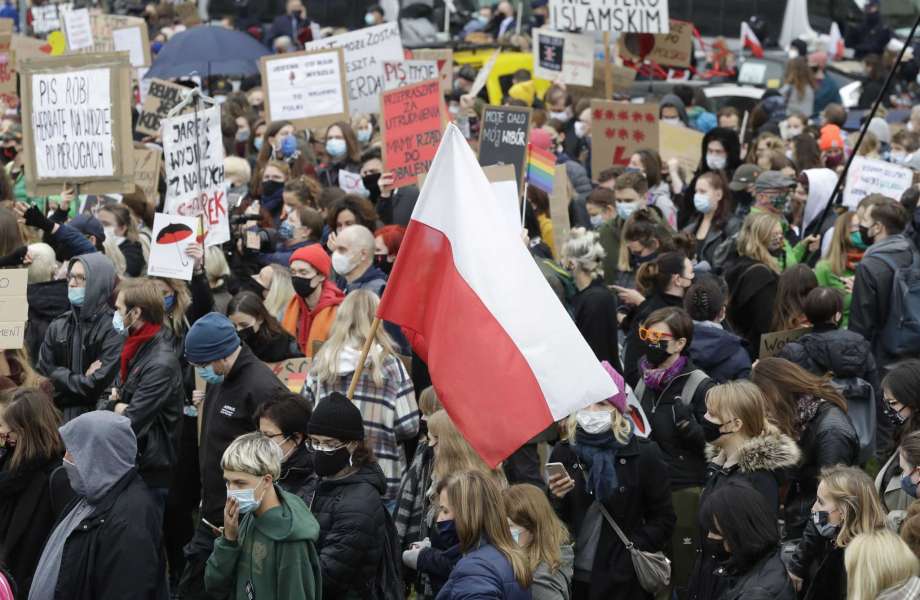Turkey-Syria Earthquake Death Toll Soars To 15,000
Freezing temperatures deepened the misery on Thursday for survivors of a massive earthquake in Turkey and Syria that killed at least 15,000 people, as rescuers raced to save countless people still trapped under rubble.
The death toll from Monday’s 7.8-magnitude quake is expected to rise sharply as rescue efforts near the 72-hour mark that disaster experts consider the most likely period to save lives.
Turkish President Recep Tayyip Erdogan on Wednesday conceded “shortcomings” after criticism of his government’s response to the massive earthquake, which is one of the deadliest this century.
Survivors have been left to scramble for food and shelter — and in some cases watch helplessly as their relatives called for rescue, and eventually went silent under the debris.
“My nephew, my sister-in-law and my sister-in-law’s sister are in the ruins. They are trapped under the ruins and there is no sign of life,” said Semire Coban, a kindergarten teacher, in Turkey’s Hatay.
“We can’t reach them. We are trying to talk to them, but they are not responding… We are waiting for help. It has been 48 hours now,” she said.
Still, rescuers kept pulling survivors from the debris, even as the death toll continued to rise.
As criticism mounted online, Erdogan visited one of the hardest-hit spots, quake epicentre Kahramanmaras, and acknowledged problems in the response.
“Of course, there are shortcomings. The conditions are clear to see. It’s not possible to be ready for a disaster like this,” he said.
Twitter was not working on Turkish mobile networks, according to AFP journalists and NetBlocks web monitoring group.
Turkish police have also detained 18 people over “provocative” social media posts that criticised the government’s response.
Temperatures plunged to minus-five degrees Celsius (23 degrees Fahrenheit) in Gaziantep early Thursday. But the cold did not stop thousands of families from spending the night in cars and makeshift tents, too scared or banned from returning to their homes.
Parents walked the streets of the southeastern Turkish city — close to the epicentre of the earthquake — carrying their children in blankets because it was warmer than sitting in a tent.
“When we sit down, it is painful, and I fear for anyone who is trapped under the rubble in this,” said Melek Halici, who wrapped her two-year-old daughter in a blanket as they watched rescuers working late into Wednesday night.
Officials and medics said 12,391 people had died in Turkey and at least 2,992 in neighbouring Syria from Monday’s quake, bringing the total to 15,383. Experts fear the number will continue to rise sharply.
In Brussels, the EU is planning a donor conference in March to mobilise international aid for Syria and Turkey.
“We are now racing against the clock to save lives together,” said EU chief Ursula von der Leyen on Twitter.
“No one should be left alone when a tragedy like this hits a people,” von der Leyen said.
Due to the scale of the damage and the lack of help coming to certain areas, survivors said they felt alone in responding to the disaster.
“Even the buildings that haven’t collapsed were severely damaged. There are now more people under the rubble than those above it,” a resident named Hassan, who did not provide his full name, said in the rebel-held Syrian town of Jindayris.
“There are around 400-500 people trapped under each collapsed building, with only 10 people trying to pull them out. And there is no machinery,” he added.





